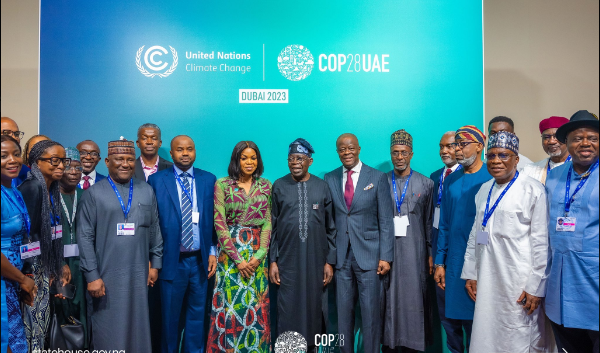Recent data from Statisense reveals that Nigeria’s GDP ranks lower than 12 countries with fewer COP28 delegates, shedding light on economic challenges and spending concerns. The findings underscore that Nigeria sent 1,411 delegates to COP28, maintaining a $477.37 billion GDP, while countries like Indonesia with 1,229 delegates boast a $1.32 trillion economy.
Japan, with 1,067 delegates, showcases a $4.24 trillion GDP, and Turkey with 1,045 delegates holds an economic volume of $905.84 billion. India follows with 948 delegates and a $3.39 trillion economy. The USA, with 770 delegates, leads with a massive $25.46 trillion GDP. These figures prompt a closer look at Nigeria’s economic position compared to its COP28 representation.
The federal government clarified that it will cover 90% of the delegates’ expenses, consisting of government officials, National Council of Climate Change, NGOs, and others. However, a source suggests that most delegates are part of the government entourage. Notably, less than half of the delegates are government-sponsored, according to attendees like Seyifunmi Adebote.
Despite COP28’s record attendance of 97,372, concerns arise about the government’s responsibility for the extensive delegation. Professor Jideofor Adibe questions the optics, emphasizing the government’s compassion for suffering Nigerians. Labour Party Presidential Candidate, Peter Obi, deems the large delegation unreasonable, with many delegates having little relevance to climate change.
While COP28 is a significant platform for climate discussions, the juxtaposition of Nigeria’s GDP and delegate count sparks discussions about economic prioritization and responsible representation.


